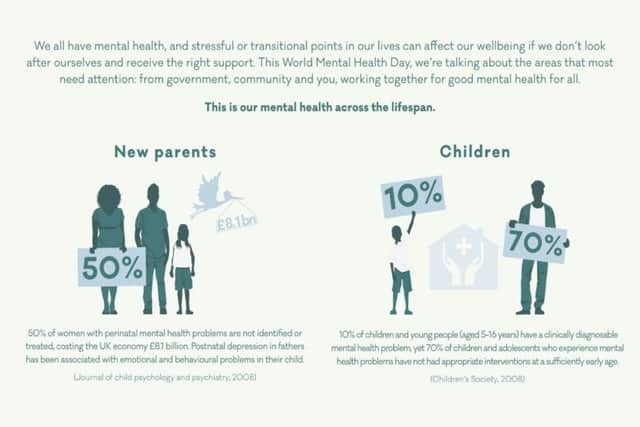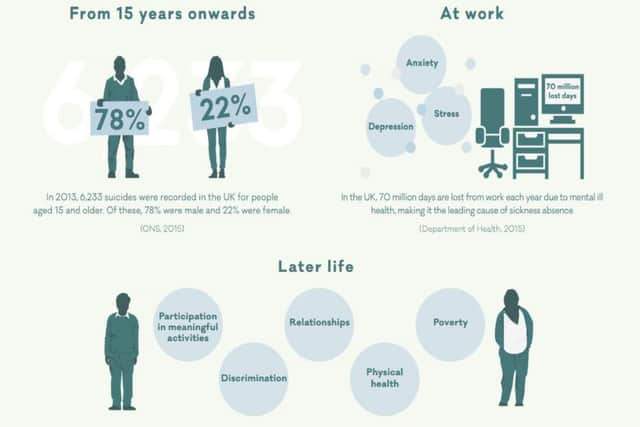4 out of 10 Scots quit jobs due to stress


The survey, by Capita Employee Benefits, found that 35 per cent wouldn’t know how to approach managers with a mental health issue.
Stress was the most common problem, with 73 per cent of employees saying that they have felt stressed in the workplace over the past 12 months.
Advertisement
Hide AdAdvertisement
Hide AdAn incredible 43 per cent said they knew a colleague who had given up a job due to stress related issues.


Women are more likely to suffer from stress than men – 79 vs. 71 per cent – and young people are more likely to be stressed than older generations – 82 vs. 68 per cent.
41 per cent of workers feel that you should come to work if suffering from stress. Despite this, only 19 per cent of people have actually taken a day off due to stress related issues.
The survey also revealed that because of the current economic situation and lower job security, 29 per cent of employees in Scotland are working longer hours; 30 per cent of people working in Scotland find it difficult to completely switch off from work issues even when on holiday; 63 per cent of people working in Scotland went in to work the last time they were ill; and 44% of Scots would rather go into work while under-the-weather than have work stack up in their absence.
Alistair Dornan, head of health management at Capita Employee Benefits, said: “Stress can take a toll on people at work, affecting their emotional and physical health as well as productivity. If employees do not feel they can talk comfortably to their employer then they may look to hide the issue. This makes it harder for employers to tackle stress and could lead to absence or performance issues.


“In our experience stigma and lack of effective management means most organisations treat illness rather than promote positive mental health. We are encouraging employers to take a pro-active approach. This includes the use of employee assistance programmes such as online support, as well as line management training to help senior staff spot the early signs of stress or depression.”
With Saturday 10 October being World Mental Health Day, Lisa Cohen, programme manager for mental heath charity See Me, said: “The theme of this year’s World Mental Health Day is dignity, to address the inequality people experience in all aspects of life.
“The inequality currently facing people with mental health problems in Scotland is stark. Men with severe mental illnesses have a life expectancy of 20 years less than the national average, for women it is 15 years less.
Advertisement
Hide AdAdvertisement
Hide Ad“Mental health affects all of us. No one should ever feel ashamed or embarrassed to speak about a mental health problem, and when they do, they should be treated with dignity and respect. However for many people this is not the case.
“We can all help to change this by treating people fairly and being there for someone who is experiencing a period of poor mental health. It is easier than you think to start a conversation, if you know someone is struggling ask them how they are, really listen and let them know you’re there.
“It only takes a few words and simple actions to make a real difference to someone’s life.”